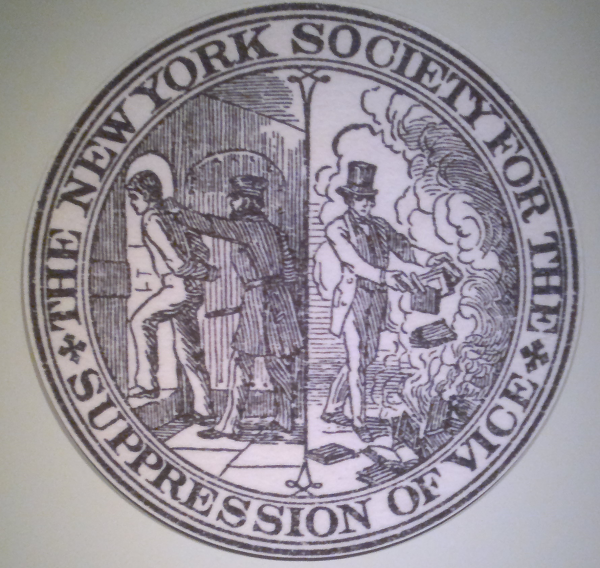Some people just can’t mind their own business. American prude Anthony Comstock sought to curb the flow of post-Civil War pornography. The Comstock Law, passed on March 3, 1873, forbade obscene material to be distributed through the U.S. Post Office. The definition of obscenity would be debated one hundred years later.
Bored and horny, soldiers in the Union and Confederacy turned to masturbation, prostitutes and rape. They pleasured themselves with the help of nudie photos and sexy novels that were nicknamed “barracks favorites.” I suppose that both sides of the Civil War were filled with yanks.
After serving as a Union soldier, Anthony Comstock joined the Young Men’s Christian Association in New York City. In 1873, he formed the New York Society for the Suppression of Vice. Apparently he thought that he could suppress the solitary vice by cutting off the supply of smut in the mail. It also forbade the delivery of contraceptives, abortifacients or even information about these. The Comstock Law allowed him to enforce his moralizing via a federal agency, the United States Postal Service.
The Comstock Law stated, “Be it enacted…. That whoever, within the District of Columbia or any of the Territories of the United States… shall sell… or shall offer to sell, or to lend, or to give away, or in any manner to exhibit, or shall otherwise publish or offer to publish in any manner, or shall have in his possession, for any such purpose or purposes, an obscene book, pamphlet, paper, writing, advertisement, circular, print, picture, drawing or other representation, figure, or image on or of paper or other material, or any cast instrument, or other article of an immoral nature, or any drug or medicine, or any article whatever, for the prevention of conception, or for causing unlawful abortion, or shall advertise the same for sale, or shall write or print, or cause to be written or printed, any card, circular, book, pamphlet, advertisement, or notice of any kind, stating when, where, how, or of whom, or by what means, any of the articles in this section…can be purchased or obtained, or shall manufacture, draw, or print, or in any wise make any of such articles, shall be deemed guilty of a misdemeanor, and on conviction thereof in any court of the United States… he shall be imprisoned at hard labor in the penitentiary for not less than six months nor more than five years for each offense, or fined not less than one hundred dollars nor more than two thousand dollars, with costs of court.”
There were a few questions. What defined obscenity? What about the First Amendment guaranteeing freedom of speech?
Roth v. United States, a 1957 Supreme Court case, both narrowed the scope of obscenity and muddied the waters. Obscenity would be defined by a “dominant theme taken as a whole appeals to the prurient interest” in the context of the “average person, applying contemporary community standards.” What were prurient interests? Which community’s standards?
One hundred years after the Comstock Law, the Supreme Court still tried to figure out what was obscene. The 1973 case Miller v. California applied three criteria to deem whether or not material would be smutty enough to be regulated.
- [W]hether the average person, applying contemporary community standards would find that the work, taken as a whole, appeals to the prurient interest,
- Whether the work depicts or describes, in an offensive way, sexual conduct or excretory functions, as specifically defined by applicable sate law;
- Whether the work, taken as whole, lacks serious literary, artistic, political or scientific value.
The first criterion reiterated Roth v. United States. The rest left room for debate.
Playwright George Bernard Shaw expressed his contempt of the situation when subjected to Comstock’s busy bodying. “Comstockery is the world’s standing joke at the expense of the United States. Europe likes to hear of such things. It confirms the deep-seated conviction of the Old World that America is a provincial place, a second-rate country-town civilization after all.”


There are no voices yet... Post-script us a message below, won't you?